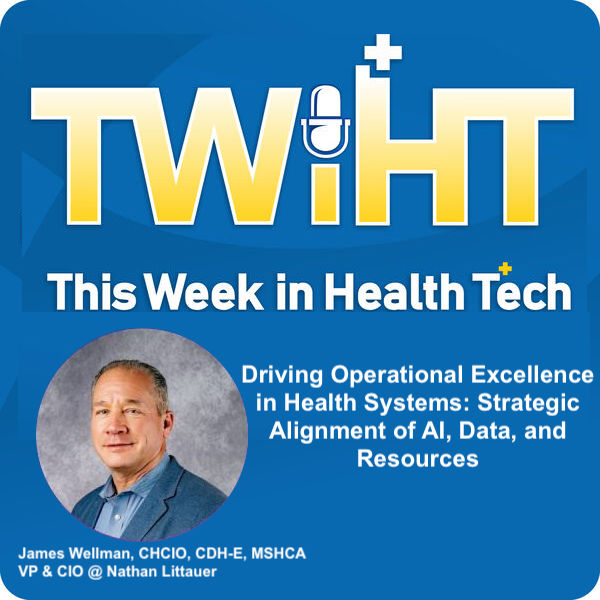
In today’s fast-evolving healthcare landscape, operational excellence is no longer a luxury—it’s a necessity. Health systems are challenged to balance the clinical demands of patient care with the operational needs of efficiency, cost-effectiveness, and data management. In the latest episode of This Week in Health Tech, Vik Patel, COO, Tido Inc. welcomes James Wellman, VP-CIO at Nathan Littauer Hospital and Nursing Home. They discuss topic of achieving operational excellence using the right combination of data, integration, AI, and resources.
Healthcare organizations can drive operational efficiency through strategic use of data and AI tools by:
- Establishing a strong data governance framework with clear ownership, standardized processes, and engaging subject matter experts across the organization.
- Transitioning to a robust, cloud-based data architecture that ensures data portability, interoperability, and security.
- Carefully evaluating and adopting AI/RPA solutions, starting with automating repetitive processes and augmenting staffing needs, while remaining cautious about potential biases and limitations of AI models.
- Aligning technology strategy with overall organizational goals, using data-driven decision making for investments and service offerings.
- Prioritizing education and communication across the organization to get buy-in and ensure effective adoption of new data and technology initiatives.
The Central Role of Data in Modern Healthcare
Healthcare organizations generate enormous amounts of data daily, from patient records to operational performance metrics. But without the ability to effectively manage and interpret this data, much of its potential remains untapped. The podcast episode emphasized how data is the foundation of innovation in healthcare, enabling organizations to make informed decisions, predict patient outcomes, and optimize workflows.
One of the critical points raised is the challenge of fragmented data. Often, healthcare systems struggle with data spread across multiple platforms and departments, making it difficult to get a complete view of their operations or patients. This is where Tido’s integration solutions and AI-driven MIDR (Managed Integration Detection and Response) tools come into play, as they are specifically designed to break down data silos and streamline information flow across systems.